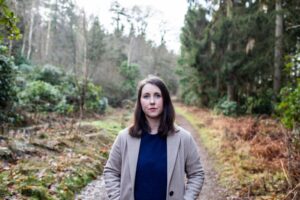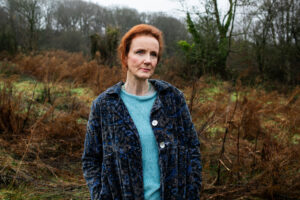Miscarriage, The Silent Grief: a project by Rachael Munro-Fawcett
31st March 2025
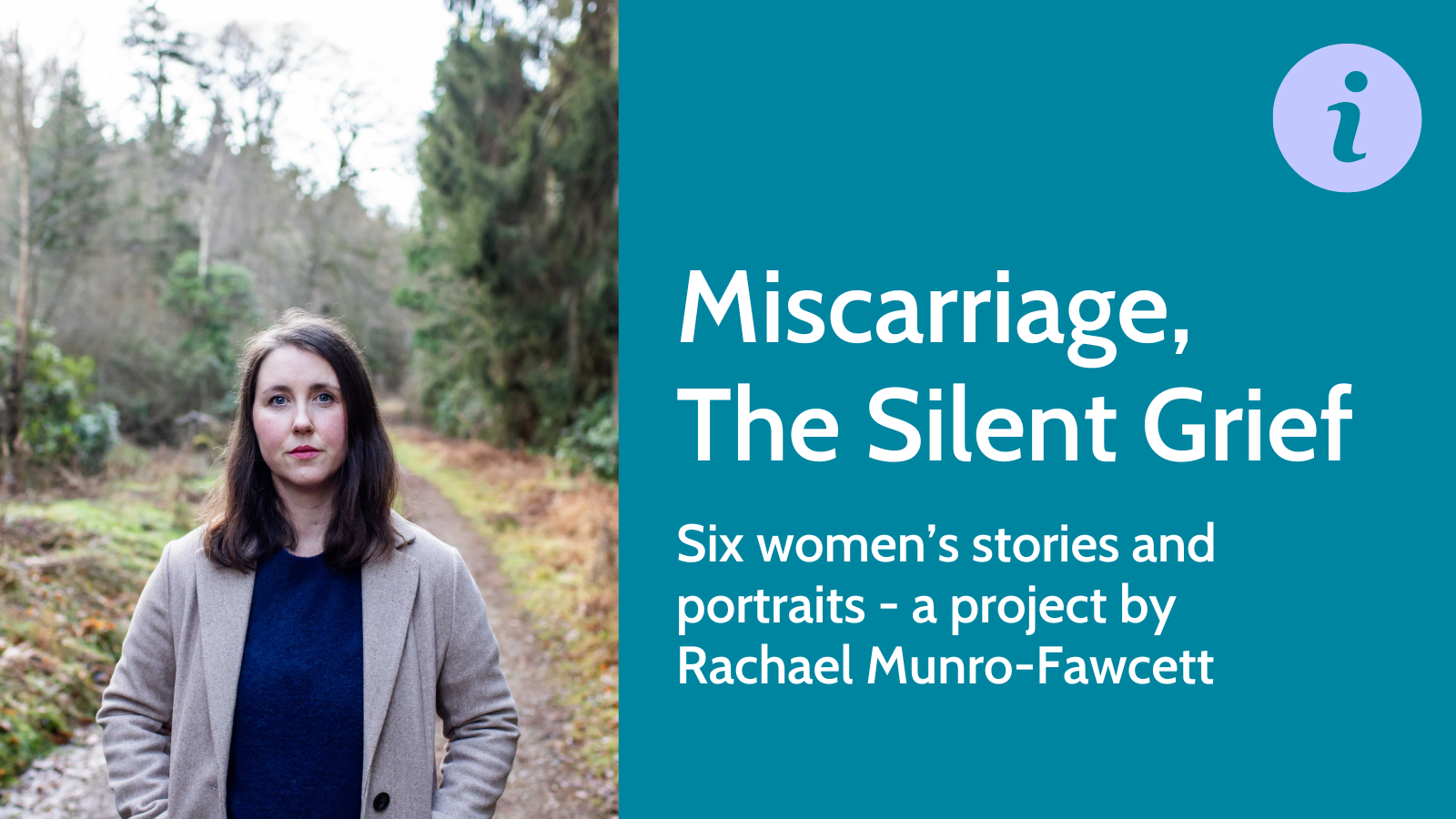
Photographer Rachael Munro-Fawcett experienced a miscarriage at 11.5 weeks in 2022. Since, she has come together with other women – friends, family, and peer groups – to share their stories, alongside their portraits, taken by Rachael. The project aims to raise awareness of the impact of pregnancy loss, and help others going through this heartbreaking experience feel less alone.
Below, we’ve included each of the portraits of Rachael, Anna, Claire, Leah, Belinda and Riva, with an exerpt of each of their stories alongside it. To read their stories in full, and find out more about Rachael’s project, click here.
Rachael’s story
“What I learned is that miscarriage isn’t just a physical loss – it’s a deeply emotional and mental one that you carry with you for months, even years, and it isolates you, making you feel as though you are carrying an invisible grief that others can’t see or understand. Even when surrounded by people who love and care for you, it’s easy to feel disconnected.
“Some people didn’t know what to say to me, which made me feel shame I didn’t deserve. But those who simply said, “I’m so sorry for your loss,” offered immense comfort.
“My hope for this project is that it raises awareness and supports change in how women are treated and cared for during such a painful time. Through connection and the sharing of stories, I found refuge, and I want other women to know they don’t have to navigate their grief alone.”
To read more of Rachael’s story, click here.
Claire’s story
“Twenty five years ago I experienced two miscarriages that left a lasting impact on my life. The first at 13 weeks, was a planned and much-wanted pregnancy. I had three children already, but this was my first planned pregnancy, and so when it went wrong, it was catastrophic. I learnt that the pregnancy wasn’t viable at the first scan and so had to return to the hospital for a termination of pregnancy. A few months later I miscarried again at 6 weeks, but this time I denied it happening, both to myself and other people because I felt like a failure. I felt like I hadn’t fulfilled my children, and so I was left feeling inadequate and very lonely.
“When I became pregnant with my youngest child Ewan, the aftermath of the miscarriages resurfaced. At eight weeks postpartum, I developed severe postnatal depression and psychosis. I was admitted to one of the few mother-and-baby units in the country, where I stayed for three weeks.
“My advice to women going through miscarriage would be, don’t carry it alone. If you can, talk to people who support you and protect yourself from those who don’t.”
To read more of Claire’s story, click here.
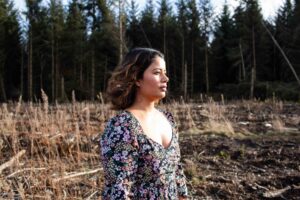
Anna’s story
“After my miscarriage my mental health was the worst it’s ever been in my life and I really struggled with this. I started to feel things I’d never felt before like a complete lack of control of my mind and body and I felt like there just wasn’t enough help or information out there for me to really understand why I was feeling the way I was. So I went through therapy and got some help because I just couldn’t get out of the cycle of feeling very low, worthless, hormonal and really paranoid of my symptoms.
“The narrative around miscarriage is evolving and I do see the different conversations that are happening between different generations. But the conversation needs to go even further so it becomes the norm to talk about something like this, because so many people experience it.”
To read more of Anna’s story, click here.
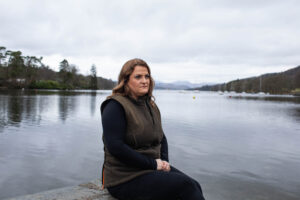
Leah’s story
“I’ll never get the date May 12th out my head, the date I had to give birth. I was 20 weeks pregnant when the doctors told me that the baby wouldn’t survive outside of me. In the days leading up to giving birth I just wanted it all over and done with and to try again, but afterwards I felt an enormous guilt that I hadn’t acknowledged the baby on the day, I just wanted it hidden away from me. I called the hospital the next day to find out the sex of the baby, this is when I really broke down.
“I’m not religious but everytime I go into a church I light a candle for that baby. There are so many different ways of miscarriages, a miscarriage further down the line at 20 weeks doesn’t make it any different to a month down the line as either way it’s still your baby. And it’s not just your baby, it’s your hope too.”
To read more of Leah’s story, click here.
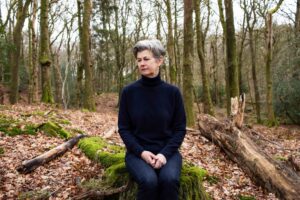
Belinda’s story
“My miscarriage happened when I was 44. I was told when I went in for my 12-week scan. The consultant had no bedside manner and used a lot of medical jargon and horrible terminology, things I didn’t understand at the time. I can remember completely breaking down and for days feeling really stunned and withdrawn and walking around feeling that everyone else was getting on with their lives with no idea what had just happened to me.
“Looking back there should have been a lot more support after I came out of hospital. Nobody signposted me to a service or told me who I could speak to, the only support I received was from my GP who phoned me out of kindness for my wellbeing.”
To read more of Belinda’s story, click here.
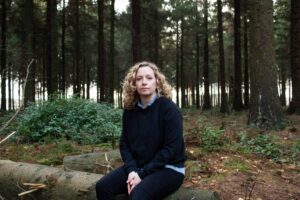
Riva’s story
“Miscarriage can be a really dark time and can affect people’s mental health in so many different ways. Even if somebody seems ok on the outside, chances are they’re probably not. The thing that really sticks in my mind, is that people would say to me “but you’ve already got one child” as if losing two was somehow easier. I think people think it’s a lesser type of grief because it’s like an invisible loss and nobody else can see it. And this can lead to a lot of anxiety and feeling like you shouldn’t be as upset as what you actually are, because society deems it as a lesser loss.
“Miscarriage needs to be spoken about so much more openly instead of this secret grief that women feel they have to carry with them and keep to themselves. It shouldn’t be kept secret because you should be able to feel your grief and process it in any way you need to. I feel like if there was more support for women going through miscarriage in the same way there is for people who lose living loved ones, then women may feel less isolated.”
To read more of Riva’s story, click here.
Thank you to Rachael for sharing her beautiful project with us, and to Claire, Anna, Leah, Belinda and Riva for sharing their stories to raise awareness of the impact of pregnancy loss. You can find the full project on Rachael’s website, and find her on Instagram to see more of her work.

